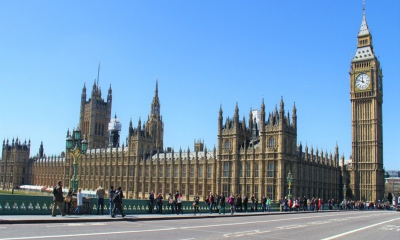Latest News
UK anti-gambling groups want gambling companies to aid problem gamblers

A coalition of antigambling groups has come up with a unique suggestion that gambling companies must share at least 1 per cent of their profit for problem gamblers, for facilitating counselling and other forms of support.
Research by the UK’s Gambling Commission revealed that more than 60 per cent UK’s population engage in some of gambling.
The commission also reported that, by its estimates, approximately 0.7 per cent of the population had a problem with gambling. This amounts to more than 350,000 people. However, other research conducted by health-care providers stated that, in the United Kingdom, approximately 2 million people either already have a gambling problem or are at risk of developing one.
Research has also found problem gaming occurs more often with some modes of gambling than others. For example, problem gamblers often resort to using online gaming as an outlet because it allows them anonymity, which means they can hide their gaming problem more easily from their families or places of work. Also, people who use fixed-odds betting-terminals, which were recently more heavily regulated by the British government, are at a higher risk of developing an addiction. Citizens who only play the national lotteries were reported to be at the lowest risk for addiction.
Possible Outlets for Funding
Currently, gambling businesses contribute money to GambleAware. This is a trust fund that is used for research, education, and treatment of problem gamblers and provides emotional support for their family members. The contributions made by businesses are voluntary and amount to about $10 million yearly, which is a drop in the bucket for the gaming industry.
However, there is a lot of disagreement about how the potential $130 million should be spent. Many people in the United Kingdom believe problem gaming is a social issue and not a health issue. Therefore, in order to control the problem gambler, gambling organisations should work together to ban those gamblers from betting shops and sites. However, with the advent of online gaming and mobile gaming, it is nearly impossible to ban individuals from websites or mobile sites because of the anonymity they provide. This is especially true given the nature of mobile payment systems and their rapid rise as a form of payment for gambling.
The UK anti-gambling organisations have some proposals for how to spend the money. They would like to establish educational programmes for gambling and addictive behaviours in the school systems so that children could get an idea of what problem gaming looks like before they are old enough to gamble. In addition, anti-gambling organisations have proposed additional funding for treatment programmes for those gamblers who cannot control their gambling habits. Support for family members of gamblers has also been suggested. Research has shown that if gamblers have support systems in place, they are less likely to gamble.
Whatever the United Kingdom decides to do, it is clear that by helping problem gamblers and their addictive behaviours, gambling companies in the United Kingdom can work towards positive relations with the public at large. In addition, if problem gamblers get the help they need, they can become vital members of their communities.
Source: usaonlinecasino.com
-

 Africa7 days ago
Africa7 days agoGhana’s NLA Introduces New Sticker to Clamp Down on Illegal Lotto Operators
-

 Asia6 days ago
Asia6 days agoPAGCOR: Online Gaming fuels nation-building, but illegal sites pose risks
-

 Latest News7 days ago
Latest News7 days agoCasino Playa de las Américas Implements JCM’s ICB Technology
-

 Eastern Europe7 days ago
Eastern Europe7 days agoDigitain Strengthens Romanian Market Presence Through KingCasino Partnership
-

 Compliance Updates7 days ago
Compliance Updates7 days agoElizabeth Varley, solicitor at licensing law firm Poppleston Allen, shares a handy refresher on the UK’s statutory levy, including the who, how much, why and how to pay
-

 Conference7 days ago
Conference7 days agoBetConstruct to Participate in SBC Summit Lisbon 2025
-

 Latest News7 days ago
Latest News7 days agoThe Next Big Step in Online Casinos From Mobile Gaming to the Metaverse
-

 Africa6 days ago
Africa6 days agoMulaSport launches Kiron’s data-lite Soccer Game across 5 countries in Africa

















